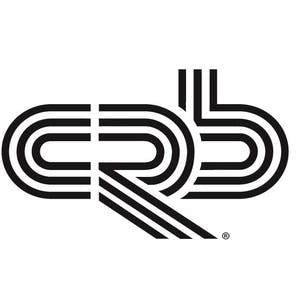Facing Pandemics and Emerging Threats, ATMP Industry Arrives at Intersection of Obstacle and Opportunity
CRB report explores challenges and solutions as cell and gene therapy organizations confront new urgency for patient therapies

KANSAS CITY, Mo., Oct. 28, 2020 /3BL Media/ – From the global COVID-19 pandemic to rare and challenging health threats, our world seems forever on the defense against disease and in need of a nimble and efficient vaccine and therapy supply chain. But a new report from CRB, a leading global provider of biopharma manufacturing solutions, spotlights the critical conflicts threatening the speedy delivery of patient therapies. From operational uncertainty and age-old budget constraints to outdated manual processes, CRB’s new Horizons: Cell and Gene Therapy report finds the biopharma industry at an important intersection of obstacle and opportunity.
Available today as a free download, CRB’s Horizons report is built on the survey responses of nearly 150 industry leaders weighing in key issues facing their organizations, such as the need for multimodal manufacturing, facility optimization, project delivery and regulatory questions. The result is a data-driven snapshot of an industry whose intellectual capital and cutting-edge science is too often betrayed by outdated technology and applications ill-suited for commercial scale at a time when demand for urgent therapies is rising.
“The biotech boom of the 1970s and 1980s gave us many of the open, manual and antiquated processes that we too often find in many of today’s ATMP research and development labs as well as regulated manufacturing environments supporting GMP clinical and commercial products —processes that rely heavily on human operators,” CRB’s Noel Maestre and Peter Walters write in the report’s executive summary. Maestre is Director of SlateXpace, a CRB solution focused on suite-based manufacturing platforms for the ATMP industry, and Walters is CRB’s Director of Advanced Therapy Medicinal Products.
“Although these processes are used to manufacture cutting-edge scientific breakthroughs, they’re based on embryonic and potentially unscalable methods (scale out vs. scale up) that are increasingly under heavy regulatory scrutiny,” Maestre and Walters write. “We often consider the scenario of a cleanroom operator sitting at her biosafety cabinet – fine for clinical research, but incredibly risky at commercial scale.”
The report analyzes the processes, manufacturing efficiencies and solutions that will determine the world’s ability to respond to pandemics and other large-scale health dangers. “The resulting vision,” writes CRB President Ryan Schroeder, “is of an industry future-proofed by new, agile and cost-effective manufacturing processes, and thus more ready than ever to meet our world’s varied and unforeseen health threats head-on.”
Among the issues and findings explored in the report:
- Multiple modalities: More than half of survey respondents indicate they expect to adopt a multimodal solution within the next two years, with flexibility, scalability, operational efficiency, and speed to market as the top drivers.
- Gene therapy manufacturing: Favorable regulatory winds and high demand for novel and in-demand cell and gene therapies are positioning viral vector manufacturing for a significant jump, with estimates predicting up to 20 percent year-over-year growth through 2025. More than 80 percent of respondents are relying on transient transfection to manufacture viral vectors from packaging cells, but a new host cell line – stable producer lines – is gaining momentum.
- Facility optimization: Nearly 80 percent of survey respondents say process development and optimization are among their top three commercial manufacturing challenges across both cell and gene therapy platforms. A majority also cite variability/uncertainty in their process among primary operations concerns, with a third citing anxiety over their facility’s achievable throughput.
- Project delivery: Two-thirds of respondents would consider turnkey, or end to end, approaches to project delivery. But when asked about barriers to adopting a turnkey method, nearly a third cite a lack of organizational awareness of end-to-end offerings in the marketplace, with constrained procurement processes and risk concerns adding to the uncertainty.
- Regulation: The key to navigating cell and gene therapy’s often complex regulatory environment is understanding ATMP regulations, communicating with regulatory agencies and industry peers, and embracing closed bioprocessing. Nearly half of survey respondents said lowered risk to patients is a top impact of closed bioprocessing, followed by lower operating costs and flexibility advantages.
- Genetically-modified cell therapy: Just 15 percent of respondents anticipate a technology switch within the next three years. Respondents rank process development and optimization above other factors as top challenges in progressing toward commercial manufacturing. The vast majority of respondents say they’re pursuing CMOs or CDMOs, with more than half indicating limited existing manufacturing capacity as the top driver for outsourcing production.
The Cell and Gene Therapy report is the first in a series of survey-based Horizons explorations of key trends in the life sciences and advanced technologies industries. You can find the report here, and see additional CRB thought leadership at crbgroup.com/insights. Also, connect with us on LinkedIn and Twitter.
About CRB:
CRB is a leading provider of sustainable engineering, architecture, construction and consulting solutions to the global life sciences and advanced technology industries. Our more than 1,300 employees provide best-in-class solutions that drive success and positive change for our clients, our people and our communities. CRB is a privately held company with a rich history of serving clients throughout the world, consistently striving for the highest standard of technical knowledge, creativity and execution.
MEDIA CONTACT INFORMATION:
Chris Clark: 816-200-5234 or chris.clark@crbusa.com

